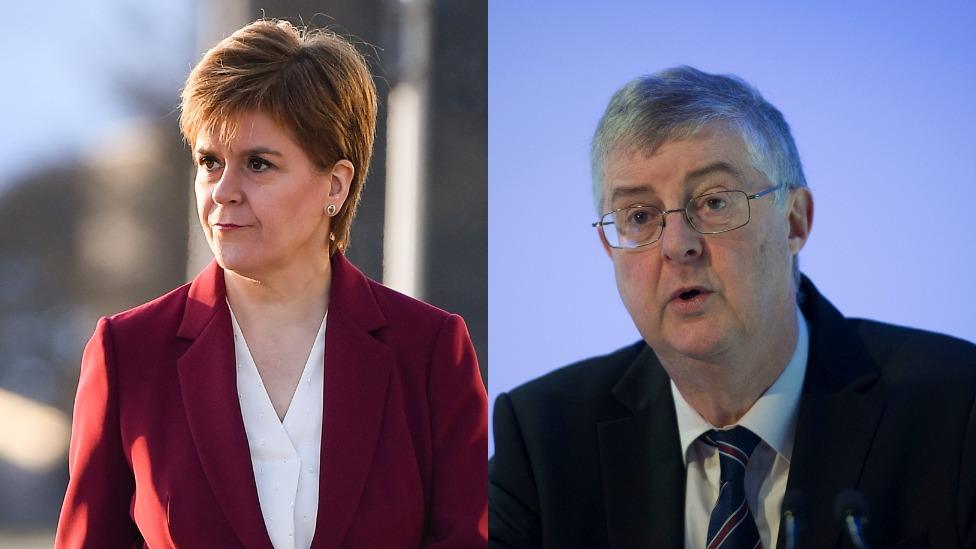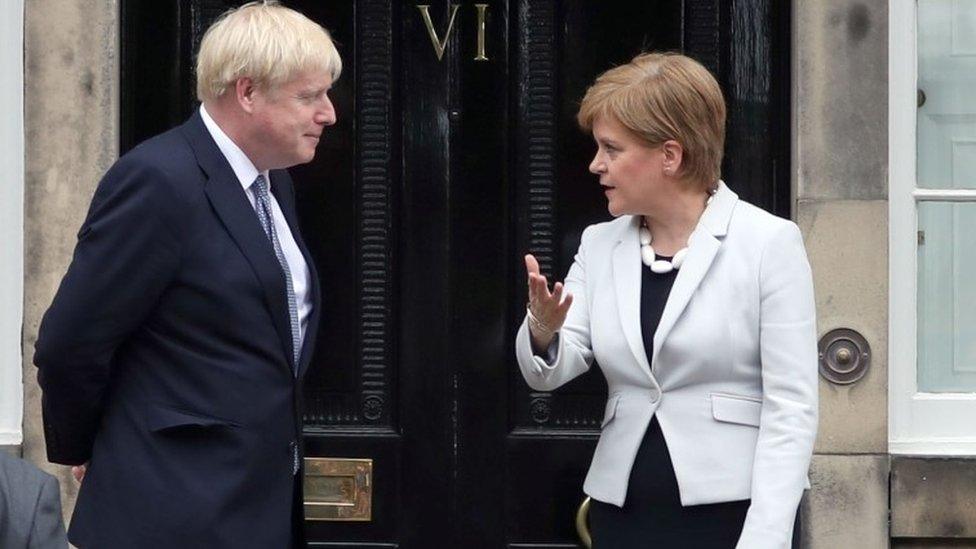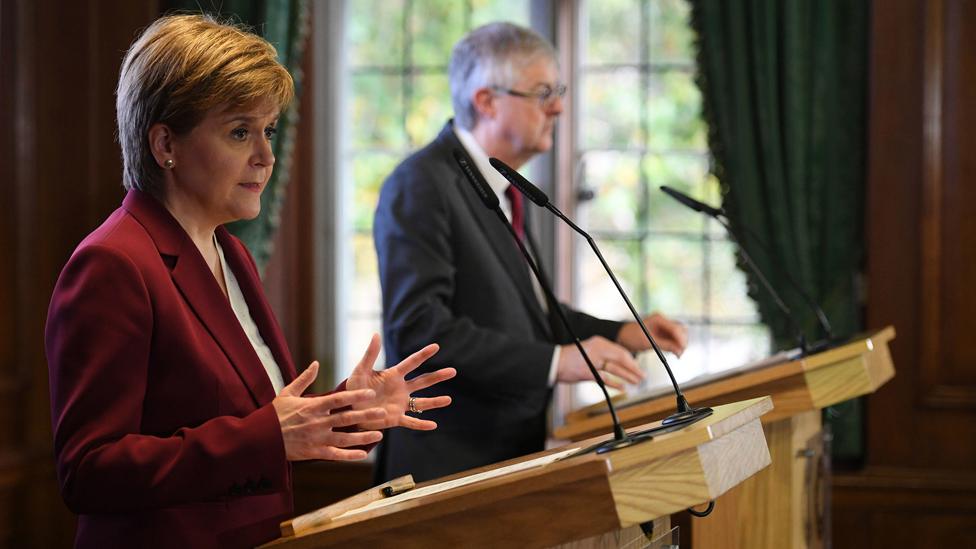Brexit: Scottish and Welsh FMs lose bid for transition period extension
- Published

Nicola Sturgeon and Mark Drakeford joined forces
The UK government will not extend the Brexit transition period, despite calls from the first ministers of Scotland and Wales.
Nicola Sturgeon and Mark Drakeford had written to Boris Johnson to request an extension.
They believe more time is required to complete negotiations and support businesses through recovery from the coronavirus pandemic.
But Michael Gove confirmed there would be no extension beyond 31 December.
In a tweet, external on Friday, he said: "I formally confirmed the UK will not extend the transition period & the moment for extension has now passed. On 1 January 2021 we will take back control and regain our political & economic independence."
Ms Sturgeon and Mr Drakeford had said said exiting the transition period at the end of this year would be "extraordinarily reckless".
Later, Scottish and Welsh ministers decided not to take part in a Brexit conference call with the UK government in protest at Mr Gove's actions.
Mr Gove's statement came after he had chaired a "constructive" meeting of the EU Joint Committee with EU commission vice-president for Interinstitutional Relations Maros Sefcovic.
It was the last formal opportunity to request an extension, as it was the final scheduled meeting of the joint committee before the 1 July deadline to make such a request.
However, both sides could agree to hold another meeting, where under the Withdrawal Agreement a delay could be requested.

Boris Johnson and Nicola Sturgeon come from very different positions on Brexit
The Scottish government has repeatedly called for the transition period to be extended.
Ms Sturgeon and Mr Drakeford warned in their letter that "fundamental issues" still remained between the UK and EU negotiators after the most recent round of talks on a deal.
They wrote: "No-one could reproach the UK government for changing its position in the light of the wholly unforeseeable Covid-19 crisis, particularly as the EU has made it clear it is open to an extension request.
"We therefore call on you to take the final opportunity the next few weeks provide to ask for an extension to the transition period in order to provide a breathing space to complete the negotiations, to implement the outcome, and the opportunity for our businesses to find their feet after the enormous disruption of recent months.
"At the time the Withdrawal Agreement was signed, no-one could have imagined the enormous economic dislocation which the Covid 19 pandemic has caused - in Wales, Scotland, the whole of the UK, in the EU and across the world."
The letter claimed that, at best, there would only be a "bare bones" trade deal in place by December, or a move to a no-deal exit from the EU.

Counsel General for Wales Jeremy Miles, Scotland's Constitutional Relations Secretary Mike Russell and Europe Minister Jenny Gilruth - the Scottish and Welsh representatives on the Joint Ministerial Committee on European Negotiations - refused to take part in a conference call planned for 18:00 on Friday.
In a joint statement, they said: "We cannot accept a way of working in which the views of the devolved governments are simply dismissed before we have had a chance to discuss them.
"In reality, the meetings we have had have simply been an opportunity for the UK government to inform us of their views, not to listen or respond to ours.
"We will be writing to Michael Gove to seek a complete reboot of these talks and meanwhile we want the EU 27 to know that the position being taken by the UK government with regard to an extension of the transition period runs counter to the views of our governments and, in our opinion, risks doing serious damage to the people of our countries."
A Cabinet Office spokeswoman said: "The government was elected with a clear manifesto not to extend the transition.
"This position was endorsed by parliament and reconfirmed by ministers in discussion with the devolved administrations.
"Extending would only exacerbate uncertainty for businesses and citizens, binding us into future EU legislation without us having any say in designing it to make sure it suits the interests of people in Wales, Scotland and across the whole UK."
- Published29 July 2019

- Published27 February 2020

- Published23 October 2019
